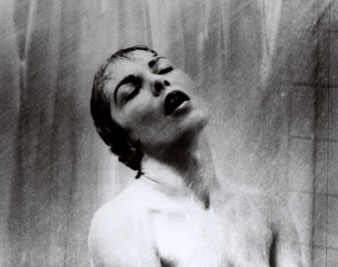 AP Images
AP Images
Actress Janet Leigh appears as Marion Crane in the famous shower scene in Alfred Hitchcock’s 1960 classic Psycho.
Janet Leigh says she hasn’t taken a shower since. She’s probably not the only one. But cleanliness was not the only casualty of Alfred Hitchcock’s classic thriller set at the fictional Bates Motel: the wholesome image of motherhood took a major hit as well.
Alfred Hitchcock’s Psycho is being advertised as more a shocker than a thriller, and that is right—I am shocked, in the sense that I am offended and disgusted.
It is not the material itself that revolts me; it is the use to which the material is put. Tile clinical details of psychopathology are not material for trivial entertainment; when they are used so they are an offense against taste and an assault upon the sensibilities of the audience. Psycho puts you in the position of rubbernecking at the horrors of the diseased mind; it makes you feel unclean. I am sorry to lecture so, but on all sides I see statements to the effect that good old “Hitch” has done it again. If that means that he has repeated the happy thrills and mystifications of The Lady Vanishes and The 39 Steps, it is nonsense. In, Psycho, Hitchcock is not an entertainer, but a pander of vicarious perversion.
I will add that Anthony Perkins, Janet Leigh and the other actors carry out their jobs very skillfully under Hitchcock’s cute, if sometimes long-winded, direction. But I will add further that, despite the talk about seeing the picture from the start and not revealing the secret, there is no real mystification. Anyone with a Sunday-supplement knowledge of psychology and a modest sophistication in the techniques of mystery-story construction will easily keep abreast of the plot. I knew what was coming and, had I been in the audience for pleasure, I would have left. It is incumbent on us to inspect the real horrors of our time, but we don’t have to traffic with Hitchcock’s giggling obscenities.


